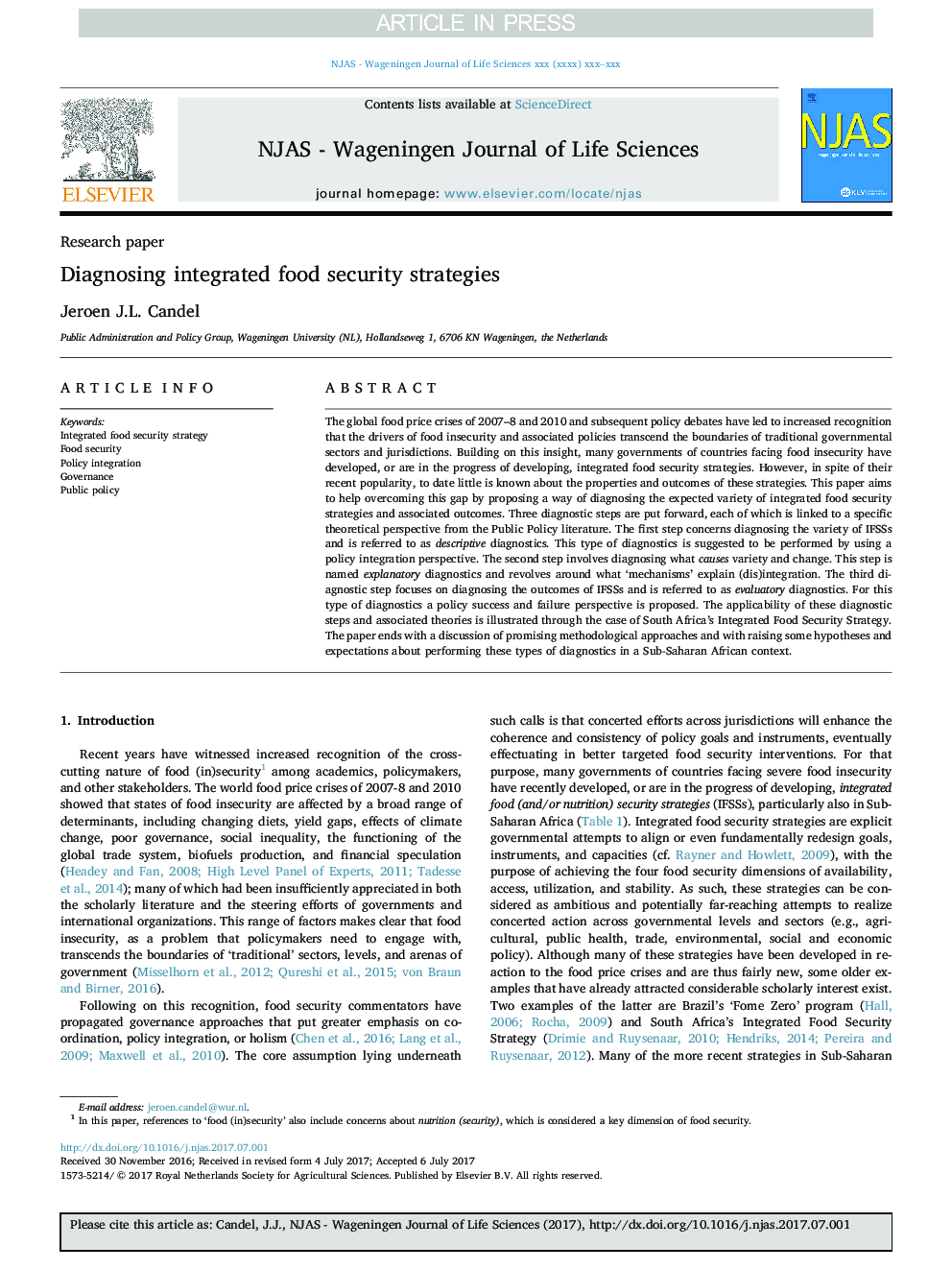| Article ID | Journal | Published Year | Pages | File Type |
|---|---|---|---|---|
| 8877157 | NJAS - Wageningen Journal of Life Sciences | 2018 | 11 Pages |
Abstract
The global food price crises of 2007-8 and 2010 and subsequent policy debates have led to increased recognition that the drivers of food insecurity and associated policies transcend the boundaries of traditional governmental sectors and jurisdictions. Building on this insight, many governments of countries facing food insecurity have developed, or are in the progress of developing, integrated food security strategies. However, in spite of their recent popularity, to date little is known about the properties and outcomes of these strategies. This paper aims to help overcoming this gap by proposing a way of diagnosing the expected variety of integrated food security strategies and associated outcomes. Three diagnostic steps are put forward, each of which is linked to a specific theoretical perspective from the Public Policy literature. The first step concerns diagnosing the variety of IFSSs and is referred to as descriptive diagnostics. This type of diagnostics is suggested to be performed by using a policy integration perspective. The second step involves diagnosing what causes variety and change. This step is named explanatory diagnostics and revolves around what 'mechanisms' explain (dis)integration. The third diagnostic step focuses on diagnosing the outcomes of IFSSs and is referred to as evaluatory diagnostics. For this type of diagnostics a policy success and failure perspective is proposed. The applicability of these diagnostic steps and associated theories is illustrated through the case of South Africa's Integrated Food Security Strategy. The paper ends with a discussion of promising methodological approaches and with raising some hypotheses and expectations about performing these types of diagnostics in a Sub-Saharan African context.
Related Topics
Life Sciences
Agricultural and Biological Sciences
Agricultural and Biological Sciences (General)
Authors
Jeroen J.L. Candel,
